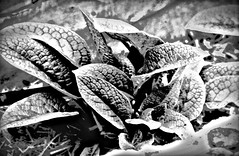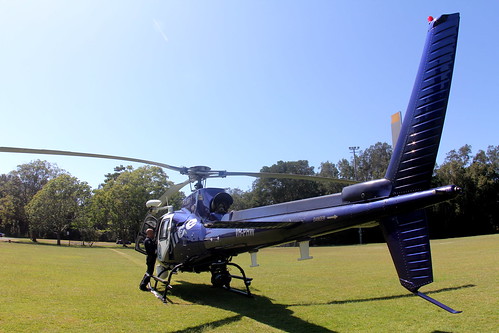Sir John Greig Latham (1877-1964), politician, diplomat
and chief justice, was born on 26 August 1877 at Ascot Vale, Melbourne,
eldest of five children of Victorian-born Thomas Latham and his Scottish
wife Janet, née Scott. The father was a tinsmith who, shortly before
John's birth, had become founder and secretary of the Victorian Society
for the Protection of Animals, a post he held for thirty-one years. The
family moved to Ivanhoe shortly after, where Thomas became a justice of
the peace and town councillor. Both he and his wife were devout
Methodists who encouraged their four sons and daughter to make their way
by industry and high moral purpose. 'In the home', their father
recalled, 'we did not allow conversation to degenerate into mere
small-talk'. John Latham abandoned the religion while at university but
retained the elevated tone for the rest of his life.
From George
Street State School, Fitzroy, Latham won a scholarship to Scotch College
and thence progressed to the University of Melbourne (B.A., 1896).
While teaching at the Hamilton Academy in 1897-98 he began to master his
nervousness and temper his earnest intensity with a formidable reserve.
A boyhood stammer was alleviated through elocution lessons and avoided
by use of synonyms. In 1899 he returned to the university to study law,
supporting himself as a resident tutor in logic and philosophy at Ormond
College. After winning the Supreme Court prize, he was admitted to the
Victorian Bar in December 1904 and entered Selborne Chambers. Progress
was slow (in his first six months as a barrister he earned just one
guinea) and for some years most of his work was in petty sessions and
the County Court. On 19 December 1907, with Methodist forms, he married
Eleanor Mary (Ella) Tobin, herself an arts graduate, to whom he had been
engaged for over four years.
Latham's success was achieved by
uncommon ability and extraordinary industry. His forensic style, based
on careful preparation and strictly logical presentation, was more
effective with judges than juries. He embarked on his career some years
after his more fortunate contemporaries and had none of their advantages
of connexion and independent means. He supplemented his income by
teaching and journalism, lecturing at the university in logic and,
later, in contracts and personal property, and contributed reports to
the
Argus at a penny a line. He joined with
(Sir) Walter Murdoch and others in forming a quarterly magazine, and even co-edited an
Australasian Students' Song Book (1911). In 1908 he succeeded his friend
Edward Shann as Australian correspondent of the London
Standard, a vehicle for Imperial sentiment. This last post was combined with service on the political committee of the
Deakinite
Liberal Party, secretaryship of the Imperial Federation League's
Victorian branch and, later, membership of the Victorian group of the
Round Table. As early as 1909 he was invited to become a parliamentary
candidate. With
(Sir) Frederic Eggleston,
he was a foundation member of the 'Boobooks', a fellowship of young
professional men formed in 1902 to dine and digress at monthly meetings.
His membership overlapped with a group of fly-fishing enthusiasts,
including the surgeon
(Sir) Thomas Dunhill and physician
(Sir) Richard Stawell, who repaired to the Snowy Mountains over the Christmas holidays along with a similar group of Sydney men,
(Sir) Thomas Bavin and Colonel
James Macarthur-Onslow among them. (The annual gathering coalesced in the 1920s as the Waterfall Fly Fishing Club, when
John Thomas Lang publicized its existence as a sinister cabal of politicians, judges and businessmen.)
There
were other personal, less advantageous enthusiasms. In 1907 he helped
to form an Education Act Defence League to resist the teaching of
Scripture in government schools. In 1909 he was an organizer of a
Rationalist Society in Melbourne and in 1910 of a tour of Australia by a
prominent British free thinker Joseph McCabe. Latham was also a keen
lacrosse player, captain of Victoria, and in 1908 represented Australia
against a visiting Canadian team. Yet that year he acknowledged that he
was 'working day and night' at his profession. How, then, are we to
understand his compulsive accumulation of offices and responsibilities?
Certainly he had a strong sense of public duty; but was there something
more, a need that never left him to gain recognition by achievement?
While outsiders saw a tall, aloof, impassive man, seemingly impatient of
all human frailty, his circle of male friends knew a different, more
companionable Jack Latham. In their company he could unbend and find
reassurance. One of them, the observant Walter Murdoch, urged Latham:
'Don't be too intolerant of those who, perhaps because they are not so
capable of clear and sustained thinking as you are, are less exultant
than you in the powers of human thought and more helplessly conscious of
its limitations'.
At the outbreak of World War I Latham was
earning £2000 a year at the Bar. About 1916 he moved from Northcote and
bought a house at Malvern. At the request of Bavin, secretary of the New
South Wales branch of the Universal Service League, he became secretary
of the Victorian branch when it was formed in 1915 and he and his wife
campaigned vigorously for the introduction of conscription. In 1917,
following allegations of sabotage in the naval dockyards, he was
appointed head of Naval Intelligence with the honorary rank of
lieutenant-commander (on his recommendation Bavin was put in charge in
Sydney). In this office he formed habits of mind that persisted
throughout his public life: an apprehension of the grave menace of
Bolshevism and a conviction that sedition should be prosecuted with the
full weight of the law.
In 1918 he contemplated seeking National Party endorsement for the Federal seat of Flinders. The seat was won by
Stanley Melbourne (Viscount) Bruce. Latham went instead to London as adviser to the minister for the navy,
Sir Joseph Cook, in the party of prime minister
Billy Hughes.
Latham contributed to the work of the Imperial War Conference and
Imperial War Cabinet but, unable to persuade Cook to allow him a real
measure of responsibility, he won the right to submit his memoranda
directly to the prime minister. Though recognizing Hughes's achievement
in representing Australian interests, Latham was critical of his
excesses and affronted by his manner. He conceived an antipathy to
Hughes that remained throughout his political career. At the Versailles
Peace Conference Latham served on the committee that determined the
Czechoslovakian borders and probably formulated the definition of 'C
class' mandates that permitted Australia to secure control over German
New Guinea. For his services abroad stretching over fifteen months, he
received £300 and in 1920 was appointed C.M.G.
On returning to the Bar in 1919 Latham made swift progress. Assisted by the appointment to the High Court of Australia of
(Sir) Hayden Starke,
who had been the senior advocate at the Melbourne Bar, Latham developed
his practice in size and scope, with an emphasis on taxation,
commercial and arbitration matters but taking in some important
constitutional cases. He reported to his English friend Lionel Curtis at
the end of 1920 that he had 'been in at least one court, and usually
more than one, on every day since the beginning of the year'. In 1922 he
took silk. He joined the Melbourne Club, and belonged also to the
Australian and Naval and Military clubs.
At the end of 1921 Latham
had been invited to become a judge of the Supreme Court of Victoria. He
declined, explaining that he was 'very keenly interested in matters in
which a judge cannot properly allow himself to be interested'.
Essentially, he was concerned with the conduct of national affairs.
Business and conservative interests became increasingly impatient in the
post-war years with the National government's economic interventionism
and inexpedient interference in industrial relations. Latham shared his
clients' disapproval of such policies and retained his hostility towards
the prime minister for what he now regarded as an unprincipled
debauchery of public life. Campaigning on the slogan 'Hughes Must Go',
he stood in 1922 as an Independent Liberal Union candidate for the
Federal seat of Kooyong and defeated the Nationalist member,
Sir Robert Best. Following that election, Latham attended meetings of the Country Party, advised its leader
(Sir) Earle Page and drafted its memoranda during the negotiations that forced Hughes's resignation from office in 1923.
In
parliament Latham first sat on the back-benches, studying briefs and
giving occasional speeches which were described as 'like lumps of ice
tinkling into a tumbler'. He addressed the House as he would the bench,
his manner prim and his voice high-pitched. One journalist christened
him 'the disembodied brain' while another called him 'the last proud
scion of a long line of pokers'. But the relentless flow of argument
commanded attention and he learned to vary his rhythm and leaven his
speeches with a dry wit.
In 1925 he joined the National Party and was appointed attorney-general from 18 December, replacing the easygoing
(Sir) Littleton Groom
whose amendments to the Immigration Act had failed to sustain
deportation proceedings against the leaders of the seamen's strike,
Tom Walsh
and Jacob Johnson. Latham's solution was to amend the Crimes Act with a
provision declaring revolutionary and seditious associations to be
unlawful and making it an offence to belong to such an association.
Reforms of industrial relations proved more difficult in an increasingly
difficult economic climate. Like many conservatives, Latham leaned
sometimes to the abolition of a mechanism which neither contained costs
nor brought industrial peace, sometimes to the strengthening of that
mechanism so that its determinations could be enforced. In the 1926
referendum Latham sought to augment the power of the Commonwealth to
close loopholes created by the overlapping jurisdiction of the
Commonwealth Court of Conciliation and Arbitration and State tribunals.
But he was almost relieved when the defeat of the referendum proposal
freed him from the responsibility of preparing a comprehensive national
code.
In 1927 he suggested to cabinet that while it was well-nigh
impossible to proscribe strikes, the lock-out provisions of the
Arbitration Act were all too effective, with the result that 'employers
fight with their hands tied'. His recommendation that all strike and
lock-out penalties be removed from the legislation was rejected. He
therefore prepared the Arbitration Act of 1928 which strengthened the
penalty provisions, introduced secret ballots into union proceedings,
and forced the court to take economic effects into consideration when
making awards.
Minister of industry from 10 December 1928, as well
as attorney-general, he harried the maritime, transport and
timber-workers' unions by discriminating application of the provisions
of the Arbitration and Crimes Acts. Yet in 1929 he conceded that the
government had failed to impose industrial peace and joined with Bruce
in requesting that the States hand over their powers of industrial
registration. When that initiative failed, he helped to formulate the
proposal to abandon the field of industrial regulation (except for the
maritime industry) to the States, the issue on which the government was
defeated in the House in September and the principal reason for its
defeat at the polls next month.
Latham's reputation for bias
towards employers in administration of the law was not wholly justified,
at least not in the conspiratorial terms in which it was usually
propounded. It is true that he did not prosecute businessmen with the
vigour applied to unionists: Mr Justice Starke made scathing criticism
of the settlement made in 1928 with the notorious tax evaders, the
Abraham brothers. It is true, also, that he maintained links with some
of the principal enterprises whose interests were affected directly by
his decisions as attorney-general: throughout the 1920s he held general
retainers from a wide range of shipping, mining and other clients. Yet
there is no evidence to impugn his integrity. He opposed what was
regarded as the government's flagrant act of favouritism in withdrawing
prosecution of the mine owner
John Brown
for locking out his workers. His one-sidedness arose not from any
illicit relationship with business clients (for he had declared openly
that 'there was much to be said in favour of the attorney-general being a
practising member of the bar') but from his inability to understand
union militancy except as the result of seditious agitation.
Bruce
having lost his seat in the 1929 election, Latham assumed the
leadership of the Nationalists and for the next eighteen months he was
leader of the Opposition. He was not averse to vigorous criticism of the
Labor administration and its members and he orchestrated an attack on
Edward Theodore,
following the conservative Queensland government's exhumation of the
Mungana affair, to force the treasurer's suspension from the ministry in
1930; but he restrained his diehards and sought to project the image of
a responsible, constructive Opposition. There were critics of such
restraint in a period of mounting discord, and as the desire grew to
reconstruct the National party on a more popular basis, so Latham's
limitations became more apparent. He accepted pressure to make way for
the former Labor minister
Joseph Lyons
and the formation of the United Australia Party was announced in May
1931. Latham's friends warmly commended his unselfishness. Labor was
defeated at the general election of 19 December. Latham was closely
involved in the unsuccessful negotiations for a coalition of the U.A.P.
and the Country Party, and he served in the U.A.P. ministry from 6
January 1932 as attorney-general and minister for external affairs and
for industry.
Latham had maintained his interest in international
affairs. In 1926 he led the Australian delegation to the League of
Nations General Assembly in Geneva and, with Bruce, attended the
Imperial Conference in London. He had always been a supporter of
Imperial links and opposed the move towards their legal definition,
views developed in the Macrossan lectures he delivered in 1928,
published as
Australia and the British Commonwealth of Nations
(1929). But the earlier basis of Australia's Imperial relationship,
summarized in Bruce's slogan 'Men, Money and Markets', could hardly be
maintained in the circumstances of the Depression. Immigrants were no
longer needed at a time when more than a quarter of the workforce was
unemployed, loans had to be repaid and markets were all too few. By
implementing the Ottawa Agreement of 1932 to extend the principle of
preferential trade within the British Commonwealth, the government hoped
to find a basis of recovery whereby the protectionist demands of its
urban manufacturing supporters could be satisfied without estranging the
Country Party. Rural interests were placated further with special
assistance schemes. In 1932 Latham also attended the disarmament
conference at Geneva and the reparations conference at Lausanne. In 1934
he toured South-East Asia, the first such initiative by a minister for
external affairs.
As attorney-general he intervened for the Commonwealth in the Privy Council appeal in
Trethowan's
case. He was responsible for the Financial Agreements Enforcement Acts
of 1932: Lang's response, instructing State civil servants not to comply
with Commonwealth orders, triggered his dismissal by the governor.
Still preoccupied with the menace of sedition, Latham enacted a new
Crimes Act in 1932, banned the transmission of communist papers through
the post, and even launched an investigation of the Australian
Pensioners' League, but some of his more draconian initiatives were
quashed by the High Court.
As deputy prime minister, senior
conservative in the Lyons ministry and close counsellor of the prime
minister, Latham was a central figure in Federal politics. In 1933 he
was appointed privy councillor. Yet throughout these years, and even
during his previous period in office, there were persistent rumours that
he would abandon politics. Sometimes the likelihood of his retirement
was attributed to a preference for the law, sometimes to an inability to
endure the financial sacrifice created by his dependence on ministerial
salary. Of the loss in income caused by his political responsibilities
there can be no doubt: when he first became attorney-general his
practice was said to be worth £6000 a year; and even though he continued
to accept briefs, the strain told on his health. The preference for
legal practice is more dubious. He cared greatly to be in the centre of
public affairs, and in his later years it was his experiences as a
minister and not as chief justice that he was wont to recall with
relish; perhaps he found the forthright style of Bruce more congenial
than the drift and compromise of the Lyons administration.
It was
evident by 1933, however, that he had set his sights on the post of
chief justice of the High Court and that the only remaining obstacle was
the reluctance of
Sir Frank Gavan Duffy
to vacate that post. It was predicted that Duffy's son would be
appointed to the Supreme Court of Victoria, Duffy himself would retire,
Latham would take his place, and the ambitious young Victorian
attorney-general,
(Sir) Robert Menzies,
would replace Latham in Kooyong and succeed him as attorney-general in
Canberra. All these things came to pass. Latham retired from politics in
1934 and was appointed G.C.M.G. He was made chief justice on 11 October
1935.
His early years on the bench were made difficult by the
play of fierce animosities among his colleagues, and it was no small
achievement that he kept them in a working relationship with each
other—Starke and
Bert Evatt
were an especially combustible combination. Later the chief justice
obtained more joint judgments. As a judge he was vulnerable to the
temptation to interrupt counsel too often and at too great length. His
most significant contributions were in constitutional law where he
insisted on a strictly legal approach. When Commonwealth legislation was
challenged, he asked not whether the legislation went further than was
reasonably necessary, for he considered that no business of the court,
but simply whether it was legislation 'with respect to' the powers
enumerated in the Constitution. He took a decidedly generous view of the
Commonwealth's defence powers and on some important cases, notably the
Communist Party case of 1951, failed to carry his colleagues with him.
But in general his judgments, which he reached with impeccable precision
of reasoning, left the law much as he found it. He retired from the
High Court in 1952.
Legislation was passed in 1940 to enable
Latham to become Australia's first minister to Japan while still chief
justice. He had a long-standing interest in Japan and was better
informed about it than almost any of his contemporaries, but he did not
reach Tokyo until the close of 1940 after Japan had concluded a pact of
mutual assistance with the Axis powers, and his mission was accordingly
constricted. He 'spoke with firmness and frankness' to successive
Japanese foreign ministers on the 'hope for friendly relations and the
resolution to resist attempts at Japanese domination'. In September 1941
he left Japan for consultations in Singapore, but fell ill and was back
in Melbourne when the Pacific War began.
Latham had been
chancellor of the University of Melbourne (1939-41). He was foundation
president of the Australian Congress for Cultural Freedom, president of
the Australian-American Association (1951-64), a local founder and
president of the League of Nations Union, president of the Free Library
Movement of Victoria (1937-48), the Australian Elizabethan Theatre Trust
(1954-61) and the Victorian Amateur Athletic Association (1943-56). He
was a director of Humes Ltd and of several other companies.
Even
as an old man, Latham took enormous pride in his achievements and was
always willing to talk about them. Those achievements were substantial.
From humble origins he had attained the most senior post in his chosen
profession and he had come very close to winning the highest political
office. He was industrious, loyal and of unquestioned integrity. In the
end, perhaps, he lacked the thrust required to succeed in politics and
the creative spark that separates the distinguished jurist from the
competent one. The intellectual certainty that Walter Murdoch had
described in 1912 narrowed his imagination and stunted his sympathy with
human frailty. But he gave fully of his energies to the many causes he
served.
His retirement years were spent in Melbourne with his wife, who predeceased him by four months.
Ella Latham,
C.B.E., had been president of the Royal Children's Hospital, Melbourne,
in 1933-54. She had supported her husband in his political career and
accepted the lengthy separations imposed first by his overseas missions,
then by the shift of Federal parliament to Canberra, and later by the
perambulations of the High Court. She and their three children were
important to Latham, and the deep distress caused by the wartime death
of their elder son was eased by the more continuous companionship they
afforded each other in their later years. To the end he remained an
indefatigable correspondent. Latham died on 25 July 1964 at Richmond
and, despite his rationalist principles, was cremated after a memorial
service at Wesley Church conducted by Rev.
Sir Irving Benson.
His estate was valued for probate at £74,365. His daughter Winifred
Mary had died in 1953. He was survived by his third child
Lieutenant-Colonel Peter Greig Latham. A portrait by William Dargie is
in the High Court, Canberra.
Latham's younger brother Leslie Scott
(1879-1950) was a leading Melbourne physician. Another brother Alan
Thomas (1883-1974) was secretary (1918-41) of the Victorian Society for
Protection of Animals and honorary secretary (1939-67) and fellow of the
Royal Historical Society of Victoria.
Latham's elder son
RICHARD THOMAS EDWIN
(1909-1943) was educated at Scotch College and the University of
Melbourne (B.A., 1930), was president of the Students' Representative
Council in 1929 and Victorian Rhodes scholar for 1931. He graduated from
the University of Oxford (B.A., 1934) with first-class honours in
jurisprudence and was elected a fellow of All Souls. The father's pride
in his son's achievement was tempered by disappointment that he taught
and practised in London. During the Spanish Civil War he drove a lorry
for a relief society. He joined the Foreign Office on the outbreak of
World War II and worked as a clerk in the refugee section where he was
an outspoken critic of the British treatment of internees. Accepted by
the Royal Air Force in 1941, he trained in Canada and was commissioned
as an observer. His aeroplane failed to return from a flight over the
Norwegian coast on 15 April 1943. While sharing his father's aptitude
and industry, he possessed greater warmth, and friends such as
(Sir) Keith Hancock, to whose
Survey of British Commonwealth Affairs he contributed a chapter on law and the Commonwealth, believed he showed outstanding promise.
PDF:
https://www.austlii.edu.au/au/journals/SydLRev/2012/33.pdf








